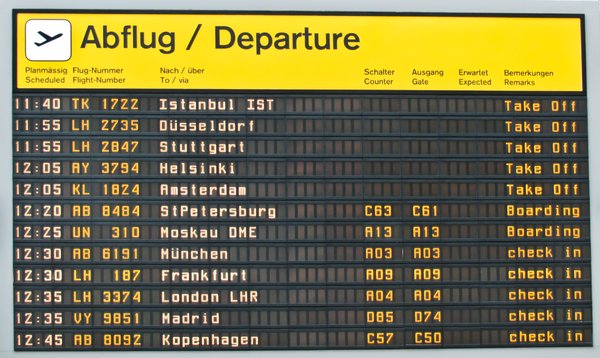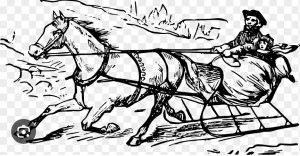Here I want to briefly try to explain what I believe is the fundamental difference between a “known event” in history and a “probable” event. (This is, of course, a continuation of the ideas I presented in my four-part series on what I attempted to argue was Richard Carrier’s misapplication to Bayesian probability to “all historical claims”.)
Carrier does not believe that all our knowledge is a question of degree of probability.
All claims have a nonzero epistemic probability of being true, no matter how absurd they may be (unless they’re logically impossible or unintelligible), because we can always be wrong about anything. And that entails there is always a nonzero probability that we are wrong, no matter how small that probability is. And therefore there is always a converse of that probability, which is the probability that we are right (or would be right) to believe that claim. This holds even for many claims that are supposedly certain, such as the conclusions of logical or mathematical proofs. For there is always a nonzero probability that there is an error in that proof that we missed. Even if a thousand experts check the proof, there is still a nonzero probability that they all missed the same error. The probability of this is vanishingly small, but still never zero. Likewise, there is always a nonzero probability that we ourselves are mistaken about what those thousand experts concluded. And so on. The only exception would be immediate experiences that at their most basic level are undeniable (e.g., that you see words in front of you at this very moment, or that “Caesar was immortal and Brutus killed him” is logically impossible). But no substantial claim about history can ever be that basic. History is in the past and thus never in our immediate experience. And knowing what logically could or couldn’t have happened is not even close to knowing what did. Therefore, all empirical claims about history, no matter how certain, have a nonzero probability of being false, and no matter how absurd, have a nonzero probability of being true. Therefore, because we only have finite knowledge and are not infallible, apart from obviously undeniable things, some probability always remains that we are mistaken or misinformed or misled. (Proving History, 24f)
When I first read those words soon after Proving History was published I went along with them, believing them to be at least theoretically true. In theory, yes, we can always be wrong about anything, so yes, even the most secure knowledge must have a non-zero chance of being wrong even if that chance is infinitesimally small. But is that really true in practice, or in the practical world of experience?
Yes, history is “in the past” but does it follow, as Carrier reasons above, that every single claim about the past has a “nonzero probability of being false”? In theory I might surmise that to be so. I might surmise that I don’t even exist and everything I am experiencing is someone else’s dream. But in reality, in the real world where I have to live, I don’t really believe that.
Look at the exception that I have highlighted in the quotation. What the example points to is empirical experience, the experience of our senses. We can call this empirical knowledge. We do not think that there is a nonzero possibility that we are wrong, that there is some chance that we are not really experiencing these words right now. Some things we do know with absolute certainty.
We not only know what we can empirically experience but we can also communicate our empirical knowledge to one another. Further, we can establish ways of assuring others that the knowledge we transmit is reliable. When I read inscribed words on monuments testifying to a tragic event that happened before my time, I know that event happened. There are a host of empirical markers that assure me of the authenticity of the event being recorded in the inscription: the public space the monument occupies, the official emblems and standardised quality of the monument, the names and dates I can verify in other public records, and so forth. There is no doubt and no room for doubt — not even an “infinitesimally small” doubt — that the event memorialised actually happened. I have used the example of the Japanese bombing of Pearl Harbor as an example of such an empirically grounded historical event for which there is no room at all to doubt that it happened.
It does not follow that because something is not part of our immediate experience, that it happened in the past, that there is necessarily some room for doubt about its past reality. Is there room for any doubt about the reality of the atomic bombing of Hiroshima and Nagasaki? Or of the events known as the Holocaust? Or of the displacement of indigenous peoples by white settlers in certain countries throughout the nineteenth century? We have records that we can test for authenticity and that confirm these events of the past. There is no room for any doubts at all. They are all empirically established facts of the past. We can prove they all happened without any shadow of doubt.
The further back we go, generally speaking, the fewer remains we have of past events and the less we know. But what we do know is based on the same kinds of verifiable empirical evidence. (I am speaking generally. Sometimes hoaxers, for example, planted forgeries with the intent to deceive. But those sorts of examples only highlight the need for care we take as a rule to authenticate our sources.)
Humans have the ability to communicate information along with ways of assuring others of its authenticity. Being human, we know how easy it is to be deceived and for others to practise deception. Hence we build safeguards and apply empirical methods to establish authenticity and assurance.
When historians research the events of the past, as a rule they are researching events that have been empirically determined to have happened. They are seeking to understand those events. Different historians will have different views about those events but the events themselves will be empirically determined to have happened. (Yes, there are some grey areas where doubts are raised but I am speaking generally, for the most part.)
Where the Historical Problem Enters
If after I have empirically established the reality of the event of Japan’s attack on Pearl Harbor, I still have a giant gap in my knowledge. What is missing is not complete assurance that it happened — I have full assurance that it happened — but I do not know the reality of what it was like. I do not know all the details and I can only guess or imagine what the participants experienced. The event is gone. It no longer exists. It has to be reconstructed. That’s where my imagination enters, informed as best it can be by surviving records of the event. No reconstruction can ever recreate the event exactly as it happened. Every reconstruction must inevitably be partial and from a particular perspective.
That is the problem of historical knowledge per se. In the history wars in Australia, for example, different parties want to reconstruct past events relating to the Aboriginals differently. Some want to see the killings as the work of a few “bad apples” and far from systematic. Others believe it is necessary to introduce other sources that point to racist attitudes that enabled the killings. Some debate the relevance and interpretations of those new sources. And so forth. That is where the historical debates tend to happen. There is no question that certain events did actually take place. Arguments will often centre over the physical extent of those events, the motivations or awareness of those involved, etc.
Some can view the British and Roman empires as blessings to humanity. Some will view them as horrific blights on history. Others will have various shades in between. But that there were such empires in history cannot be doubted any more than you can doubt that you are reading these words right now. The empirical evidence for them leaves no room for doubt.
Empirically established knowledge is not the same as Bayesian probabilistic knowledge.
Like this:
Like Loading...



